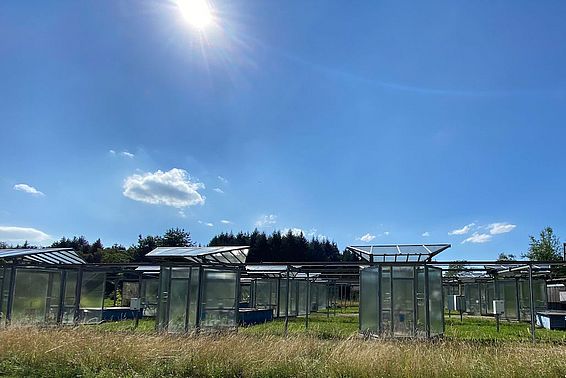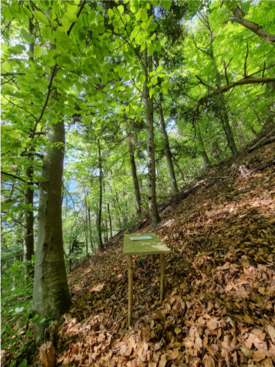HEAT - Keeping it cool in a Hotter world
2022 - 2026
brEAking new ground into the drivers and consequences of forest Temperature regulation ¶
We will use a hierarchical cross-scale approach that spans plant physiology, remote sensing, and community ecology to assess the physiological and ecological processes that underpin forest temperature regulation during hotter droughts from the leaf- to the ecosystem-level. The work will take place at the Model Ecosystem Facility (MODOEK) at WSL and on field sites in Saillon (Valais).
Hot droughts are an emerging risk to forest health, with heat- and drought-related disturbances being reported worldwide. During hot droughts, one crucial but often overlooked aspect is the impaired capacity of trees to regulate their leaf temperature. Leaves perform critical temperature-dependent functions that determine tree persistence.
Yet, we know very little about the drivers and mechanisms of canopy temperature regulation, its variation between functional groups and forest types, and the feedback on leaf function during and after extreme thermal stress. Hence, how chronic temperature rise combined with precipitation reduction will disrupt tree temperature regulation and imperil forest functioning and survival in the long-term is still unclear.
We will use a hierarchical cross-scale approach that spans plant physiology, remote sensing, and community ecology to provide an integrated assessment of the physiological and ecological processes that underpin forest temperature regulation during hotter droughts from the leaf- to the ecosystem-level.
Our objectives are:
- to disentangle the impacts of heat and soil drought on leaf temperature regulation and its interaction with foliar water and carbon dynamics, and
- to determine the effect of forest species composition on canopy temperature regulation during hot droughts.
Together, these tasks will provide integrated insight into one of the most pressing threats associated with climate change, namely how the exacerbation of droughts with elevated temperature will alter forests and the functions and services they furnish. The project will also provide benchmark information on forest’ strategy and ability to tolerate heat and drought, which is critical for sustainably managing and restoring already affected ecosystems.
The work will take place at the Model Ecosystem Facility (MODOEK) at WSL and on field sites in Saillon (Valais).



